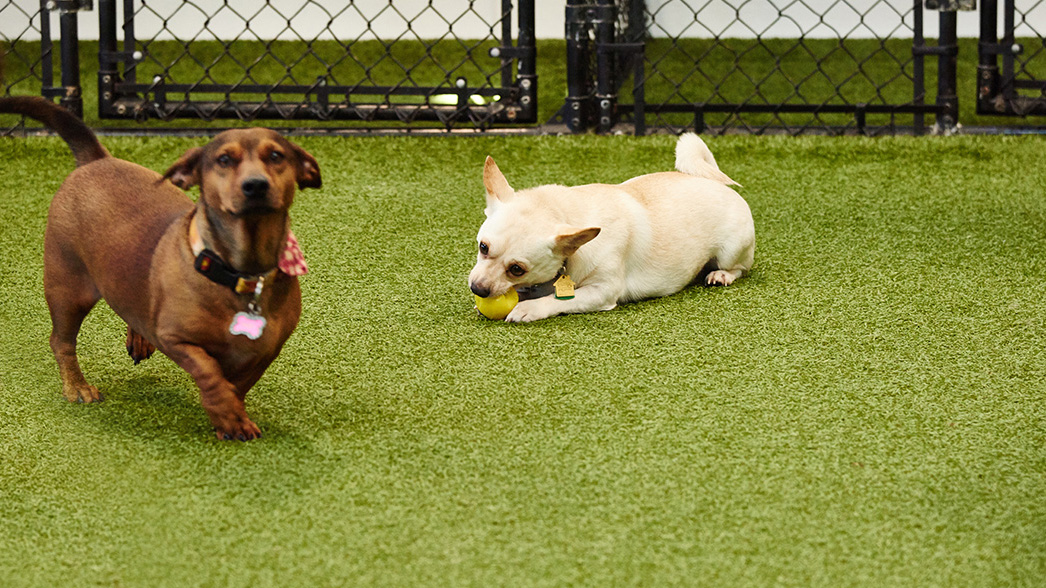
BLOG
Let’s Get Social: The Importance of Building Your Pet’s Social Skills
Merritt Milam | August 1, 2022
The learning process for puppies begins on day one. From the day they are born, puppies are active learners as they are exposed to new sights, sounds, smells, and sensations. It is widely accepted that a puppy’s greatest socialization opportunity is from birth to 5 months of age. By successfully socializing your dog during this influential time, your pet can reduce feelings and actions of anxiety, fear, and aggression. Here are some important tips to help socialize your puppy.
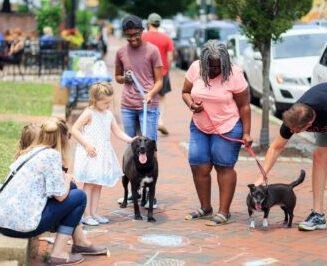
What is Socialization?
Socializing your new puppy means helping your pet learn to deal with other people, pets, and environments. Making sure your puppy is properly socialized with other pets and people early will help them grow into a more stable, well-adjusted pet. Socialization builds confidence and helps your puppy become less fearful of new people, pets, and experiences.
First Steps of Socializing Your Pet
Starting your puppy’s socialization process may seem overwhelming, but with a little effort…your furry friend will be comfortable and happy around other people and pets. Trying to introduce your dog to everything they may encounter in life is impossible…but a good place to start is with friends and their pets. Casual settings that are comfortable and familiar provide the best first socialization environments. Keep it short, with lots of praise and pats. Socialization is also important to help your dog learn to handle many people, sounds, and environments that otherwise might be frightening and cause them to bolt from your grasp. If your puppy becomes frightened during a socialization exercise, try using praise and treats to convince them that they are safe and in a good place.
Holding and cuddling your pet daily is encouraged. Gentle touches and stroking by you and others is also a positive experience and will reduce anxiety and stress. Exposing your pet to different sounds is helpful during these early months of life. Whether it’s a doorbell ringing, the garbage truck, the TV, or children playing outside, exposing your pet to a variety of sounds will help them learn not to be alarmed or bark at every sound they hear. These new sounds and distractions can be a positive learning experience when associated with treats and praise.
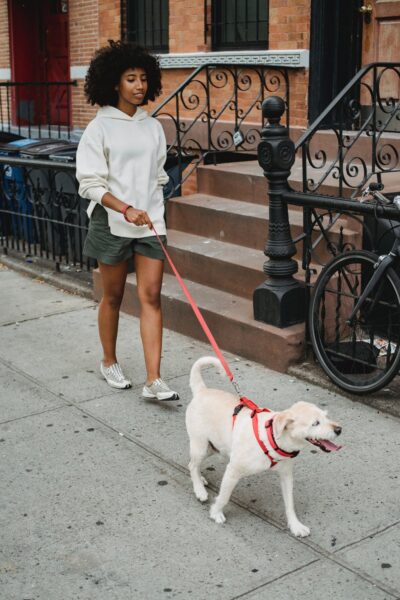
Additional Socialization Opportunities
Taking walks in the neighborhood or park will expose your puppy to different smells, sounds, and surfaces. They’ll likely meet new people and pets. Make sure they are kept on a leash for their safety as well as the safety of others. Also, with Canine Cough still very active in the area, it is strongly recommended you have your pet vaccinated and only be allowed around other vaccinated dogs. Even though close contact may not be possible with other dogs, human contact remains important in the socialization process.
Additional socialization opportunities can be provided by taking your dog on walks at pet-friendly stores and shops, allowing them the opportunity to experience a totally different environment. Always keep your pet on a leash and make sure any direct human contact is only allowed if you are confident your dog will not jump or bite.
For a fun socialization opportunity, schedule your pet for a day at Camp Wags. Camp Wags offers a fun-filled daycare where dogs can enjoy a full schedule of playtime and socialization. Camp Counselors take great care to introduce dogs properly and determine play groups by each dog’s personality and preferences. Camp Wags embraces a low Counselor-to-pet ratio to devote more time to each animal while ensuring the safety of all. For more information on scheduling your dog for Camp Wags call (205) 902-WAGS (9247).
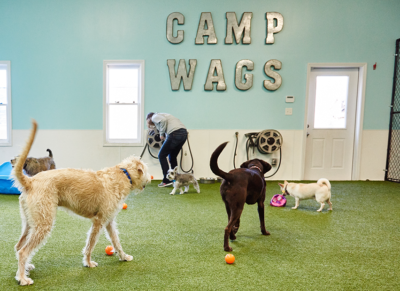
Dog Training Classes
Socializing goals can also be accomplished through dog training facilities like Roverchase. Wags and Roverchase have created a training collaborative to provide your pet a positive, convenient opportunity for teaching your pet a variety of basic to advanced social skills.
All dogs over the age of 16 weeks begin in Level 1. (Under 16 weeks pets can attend our Puppy Kindergarten class.) Pet parents can sign-up for each class individually and attend as many times as you like. We have two convenient locations to serve you. With instructor approval, your dog will move through successive types of socialization skills by evidencing proficiency at each level. You can take breaks, go on vacation, or switch days/locations as much as needed to fit your busy lifestyle.
At just $39 per class, this flexible, fun, and effective option is perfect for any lifestyle that wants the very best family dog training for their pup! For more information visit our training page here.
Is It Too Late to Socialize My Adolescent or Adult Dog?
While the most favorable time for socializing a dog may have passed there is still much an older pet can learn. Contrary to the old adage, an old dog can learn new tricks!
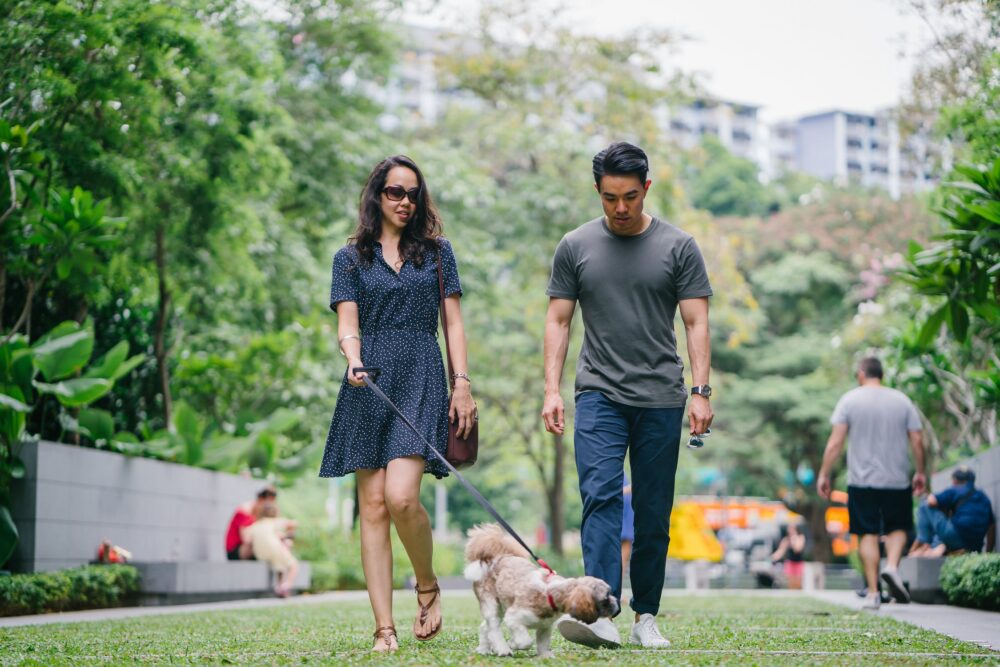
Like socializing a puppy, it continues to be important to expose your older pet to new people and places. Use a positive reward and praise method to build trust and confidence and continue providing warm hugs and gentle touches. This shows your pet that you care and are there for them. Older pets can also benefit from professional dog training classes that will build their confidence and socialize them with other dogs and people.
Socializing your new puppy or even an older pet will have lasting, positive benefits for them and the whole family. If you are interested in more information on socializing your dog visit Karen Pryor’s website. To schedule your pet for training classes, visit the Wags training page.


